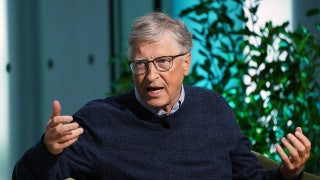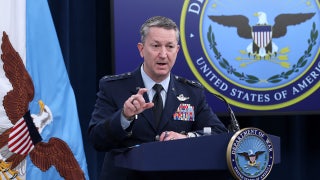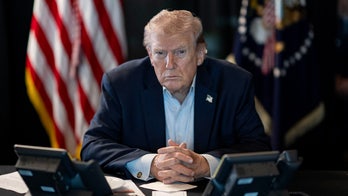In what will be the most scrutinized encounter at the Summit of the Americas in Panama, President Barack Obama and Cuban President Raul Castro plan to hold a groundbreaking bilateral meeting Saturday.
It will be the first planned discussion between a U.S. and Cuban president in more than 50 years. The historic meeting will occur as the two presidents work to restore diplomatic ties after more than half a century of estrangement between their countries.
Obama and Castro spoke by phone ahead of the summit, said Jorge Leganoa, deputy director of Cuba's state-run National Information Agency. The White House says the call came Wednesday, before the president left Washington.
Both leaders arrived in Panama City on Thursday for the summit, which is Cuba’s first participation in the event after having been essentially banned by the United States.
Details of their meeting were still being worked out Friday, said Obama foreign policy adviser Ben Rhodes.
"The two leaders will be able to address and take stock in any discussion they have over where we are in the process of normalization, where we are in the discussions around the establishment of embassies and where we continue to have differences," he said.
The White House was coy over the status of the State Department's recommendation to remove Cuba from the U.S. list of state sponsors of terror. Removal is a top issue with Castro because it would not only eliminate Cuba's status as a pariah, but also ease Cuba's ability to conduct simple financial transactions.
Nevertheless, the pace of activity over the terror list suggested that even if Obama did not make an announcement Saturday, one would come soon.
Indeed, the U.S.-Cuban outreach has entered a new, accelerated stage in recent days, with Obama speaking with Castro by phone Wednesday and U.S. Secretary of State John Kerry holding a lengthy meeting with Cuban Foreign Minister Bruno Rodriguez late Thursday.
The Cubans also put an optimistic face on the developments. The Cuban foreign ministry issued a brief account of the Kerry-Rodriguez meeting, saying that for nearly three hours they discussed the reestablishment of diplomatic relations and the opening of embassies in a "respectful and constructive atmosphere."
"Both parties agreed to continue discussing other matters," the ministry said.
It was the highest-level, face-to-face contact between officials from the two countries since the Dec. 17 announcement that Washington and Havana would move to restore diplomatic relations that were severed in 1961.
The flurry of diplomacy ahead of and around the seventh Summit of the Americas was recognition of the historic nature of the new relationship, one intended to end five decades of American presidents either isolating or working to overthrow Fidel Castro's government.
Obama was already getting praise from allies in the Americas.
"President Obama is going to leave a legacy the way he is supporting Hispanics in the United States, and also his new policy for Cuba for us is very important," Panamanian President Juan Carlos Varela said as he met with Obama.
Based on reporting by The Associated Press.











































